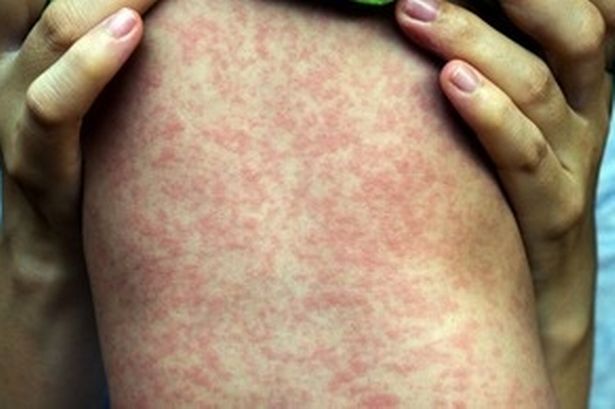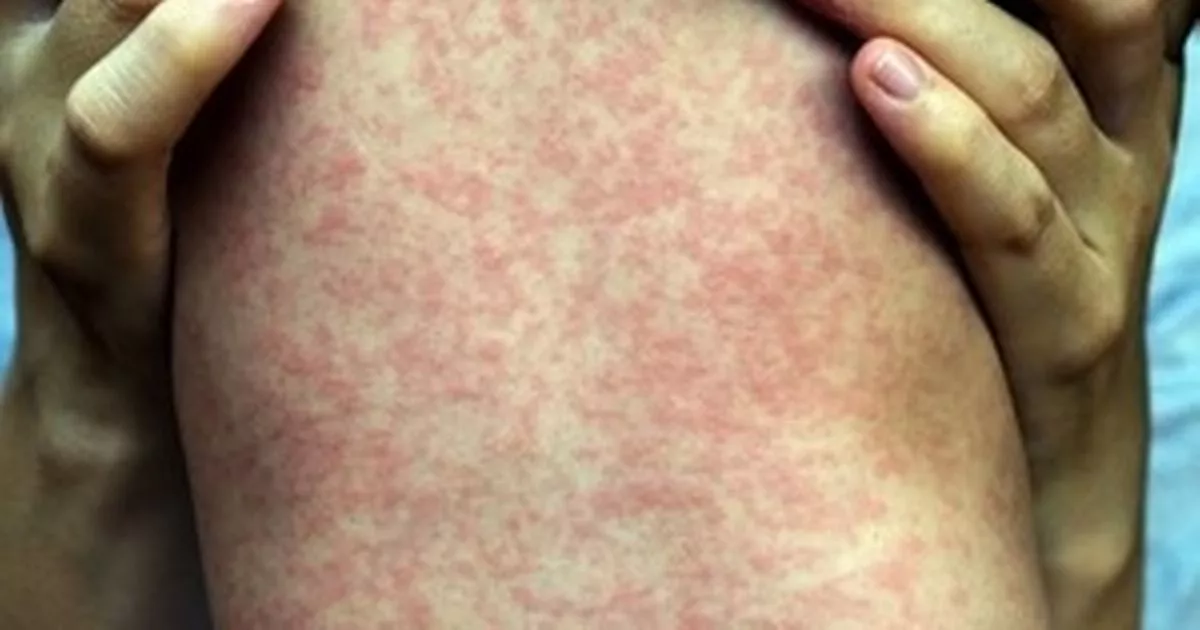The tragic death has sparked fears of an outbreak across the UK as vaccination rates stall
09:19, 13 Jul 2025Updated 09:19, 13 Jul 2025
 The childhood illness can be deadly for many(Image: Copyright Unknown)
The childhood illness can be deadly for many(Image: Copyright Unknown)
A child with measles has died in a Liverpool hospital, the second in Britain this decade. The tragic death has prompted concern from many healthcare officials that an outbreak could be on the horizon.
The child has not been formally identified, but is understood to have been in the intensive care unit, severely ill with measles as well as other serious health problems. It is not known whether the child who died had been vaccinated with the MMR jab, which provides 97% protection against getting ill.
They were one of 17 children who had to be treated in the Liverpool Alder Hey hospital for the illness, prompting worry from officials that the virus could take hold and “spread like wildfire”.
The MMR vaccination rate for children by the age of five in Liverpool is just 73%, a difference of 10% compared to the whole of England at 84%. It is the lowest uptake outside of London.
The World Health Organisation says a threshold of 95 per cent is needed to achieve herd immunity.
Professor Matt Ashton, director of public health for Liverpool, said: “I’m extremely worried that the potential is there for measles to really grab hold in our community.
“My concern is the unprotected population and it spreading like wildfire. That’s why we’re trying to be proactive. It’s really important that people understand the seriousness of this.”
Alder Hey Hospital, where the child received treatment, has started vaccinating children in its A&E department who may have missed their vaccinations while being treated for other conditions. The hospital’s experts are developing guidelines for other hospitals to follow in response to the increasing number of cases.
Outbreaks have been happening in Texas over in the United States too, due to vaccine hesitancy fueled by conspiracy theories and the Secretary of Health, Robert F. Kennedy Jr. Cases in the US have just reached a 33-year high.
What are the symptoms of measles?
According to official NHS guidelines, the first symptoms of measles include a high temperature, a runny or blocked nose, sneezing, a cough, and red, sore, watery eyes. These cold-like symptoms can occasionally delay diagnosis, as many parents assume it’s a less worrisome childhood illness.
One of the surefire ways to know if it’s measles is by examining the inside of the mouth. White spots should be on the inside of the infected’s mouth.
The measles rash usually appears a few days after the cold-like symptoms. The spots of the measles rash are sometimes raised and join together to form blotchy patches. They’re not usually itchy.
While the symptoms may sound relatively harmless, measles can lead to serious problems if it spreads to other parts of the body, such as the lungs or brain.
Problems that can be caused by measles include:
- pneumonia
- meningitis
- blindness
- seizures (fits)
These problems are rare, but some people are more at risk. This includes babies and people with weakened immune systems.
